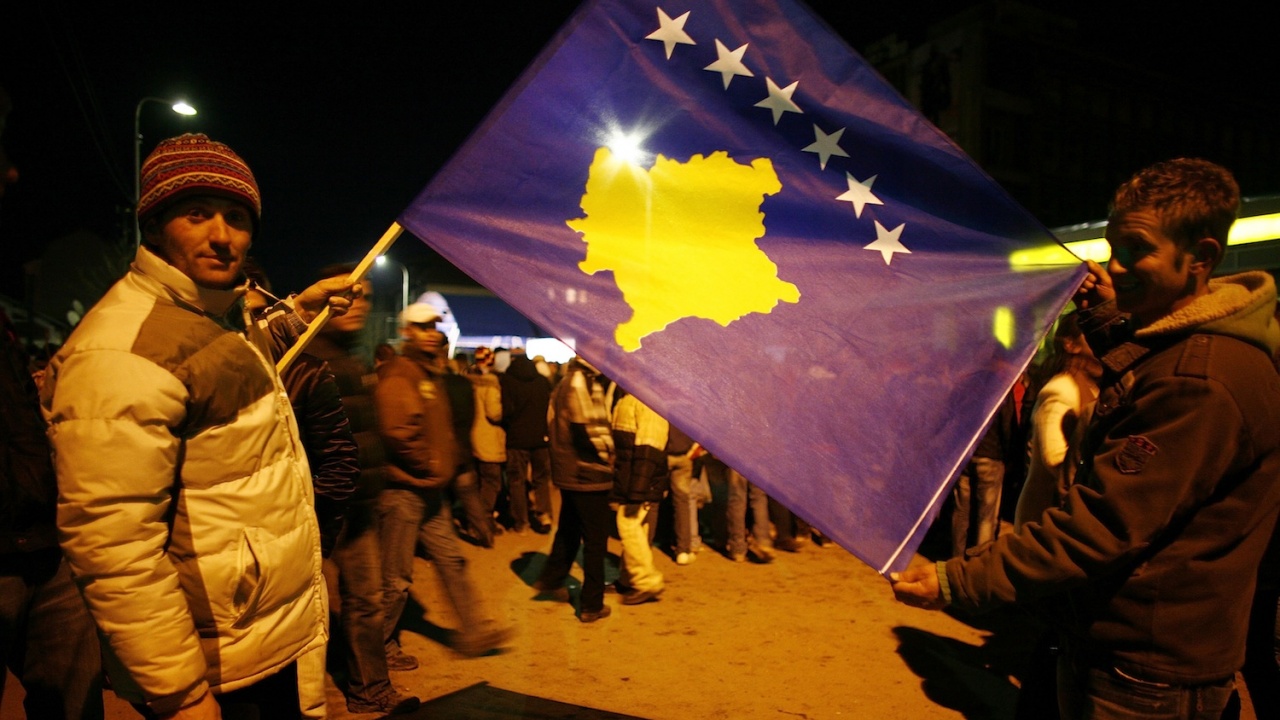Listen to the news
Fifteen years after Kosovo declared independence, the 50,000 Kosovo Serbs in the north, bordering Serbia, refuse to recognize state institutions, receive salaries and welfare payments from the Serbian budget and pay no taxes to either Pristina or Belgrade.
Tensions have risen further recently after Kosovo Serbs left their posts in regional institutions, including the judiciary and judiciary, and after authorities tightened measures against cross-border smuggling, began construction of a border police base and demanded the replacement of Serbian registrations numbers with Kosovar.
Reuters, quoted by BTA, points out several facts about the ongoing contradictions that fuel instability in the Western Balkans and that must be resolved in order to fulfill the conditions for Kosovo's entry into the European Union:
What are the roots of tension?
The independence of ethnic Albanian-majority Kosovo was declared on February 17, 2008 - almost a decade after the armed struggle against repressive Serbian rule.
Kosovo's independence is recognized by more than 100 countries.
Serbia, however, still considers Kosovo part of its territory and denies allegations that it is fomenting strife within its neighbor's borders.
Belgrade accuses Pristina of violating the rights of Kosovo Serbs.
Ethnic Serbs make up five percent of Kosovo's population of 1.8 million, while ethnic Albanians make up about 90 percent.
Serbs in northern Kosovo express their displeasure by refusing to pay the state for the electricity they use and often attack police who try to make arrests.
What causes the tension to worsen?
On December 10, Serbs in northern Kosovo erected several road barricades and clashed with police after a former Serb police officer was arrested on charges of assaulting police during a previous protest.
Tensions have also been rising for months over a dispute over car registration numbers.
For years, even before independence, Kosovo has been asking Serbs in the north of the country to replace their Serbian license plates with ones issued in Pristina, as part of its policy to establish authority over the entire territory of Kosovo.
On July 31, Pristina announced a two-month deadline for Kosovo Serbs to change their Serbian license plates, sparking unrest, but after EU crisis mediation, Pristina agreed to extend the deadline until the end of 2023.
Mayors, regional judges and 600 police officers of Serbian origin resigned in November to protest the looming enforcement of license plate changes, deepening the crisis and lawlessness in the region.
What exactly do the Serbs want?
Serbs in Kosovo want to create a union of Serb-majority municipalities that would have significant autonomy and lead the region's institutions.
Pristina dismisses this as a recipe for a mini-state within Kosovo, which would divide the country along ethnic lines.
Serbia and Kosovo have made little progress on this and other issues since accepting EU mediation in 2013 to normalize relations, a condition for both countries to join the EU.
What is the role of NATO and the EU?
NATO maintains 3,700 troops as part of its peacekeeping force in Kosovo.
In 1999, NATO deployed 50,000 troops in the former Serbian region.
The alliance says it will intervene in accordance with its mandate if there is a risk of renewed conflict in Kosovo.
The EU mission EULEX started in 2008 to train local police and enforce measures against corruption and criminal groups.
The mission consists of 200 special police officers in Kosovo.
What is the EU's latest peace plan?
Mediators from the US and the EU are pressing Serbia and Kosovo to accept a plan presented in mid-2022, according to which Belgrade would not interfere with Kosovo's admission to international organizations, including the United Nations, and Kosovo would form a Union of Serbian Municipalities.
Both sides will open offices in each other's capital to help resolve current disputes.
What do Serbia and Kosovo think of the plan?
The President of Serbia, Aleksandar Vucic
Aleksandar Vucic - Serbian lawyer and politician. Aleksandar Vucic was born on March 5, 1970 in Belgrade.
appeared ready to accept the plan, warning opposition nationalists in the Belgrade parliament that otherwise Serbia would face isolation in Europe.
Kosovo Prime Minister Albin Kurti accepted the plan, calling it a "solid platform" for further talks on "international guarantees"-type steps - discussing possible terms for local self-government by Kosovo Serbs.
However, with the presence of extreme nationalists on both sides, as well as among Serbs in northern Kosovo, no solution is yet in sight.
What is at stake for the local Serbian population?
The Serb-majority region of Northern Kosovo is in many ways a de facto extension of Serbia.
Local administration and civil servants, teachers, doctors and major infrastructure projects are financed by Belgrade.
Local Serbs fear that if they fully integrate into Kosovo, they will lose some rights in Serbia, such as the right to free public healthcare, and be forced to use Kosovo's private healthcare system.
They also fear that their pensions will be smaller, given the fact that pensions in Kosovo are 100 euros and those in Serbia are 270 euros.
KFOR Commander: The situation in Kosovo is calm, but fragile and unstable
Alexander Vucic
